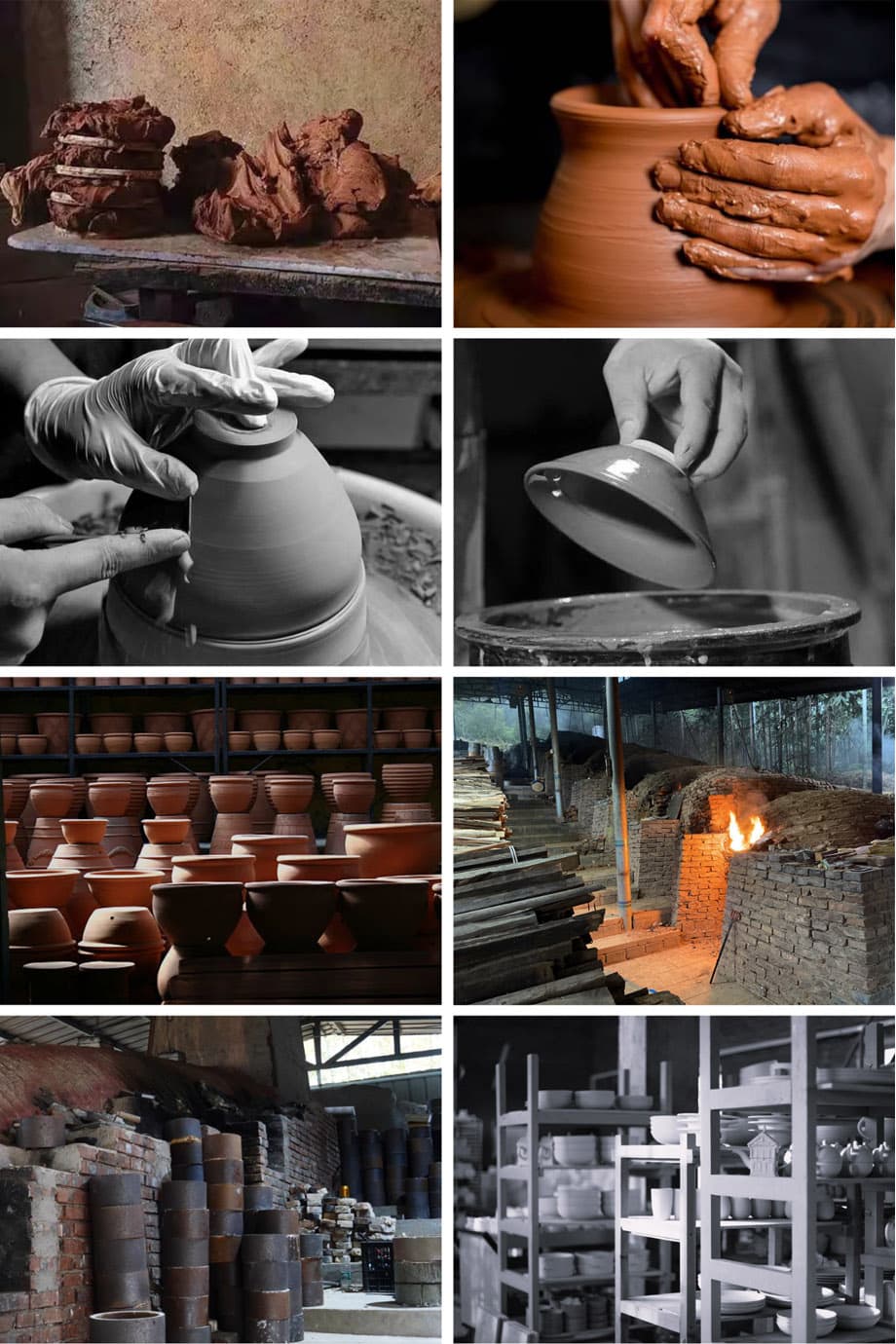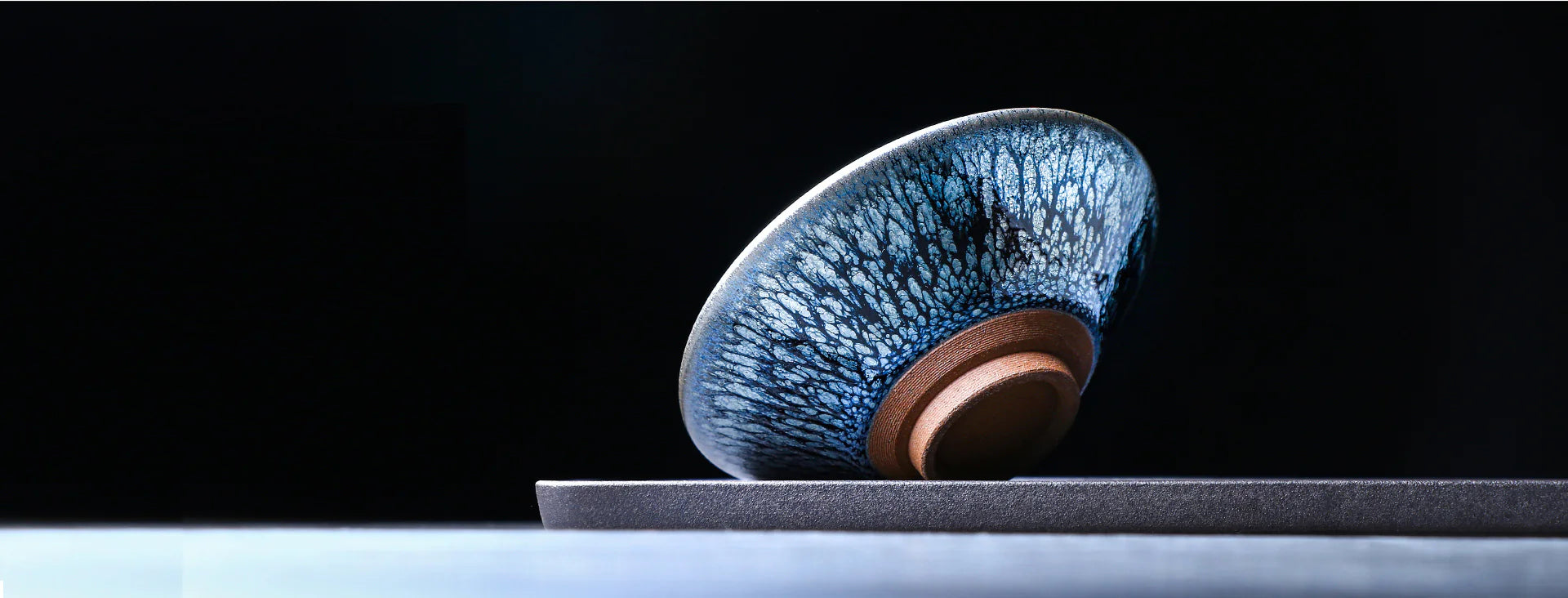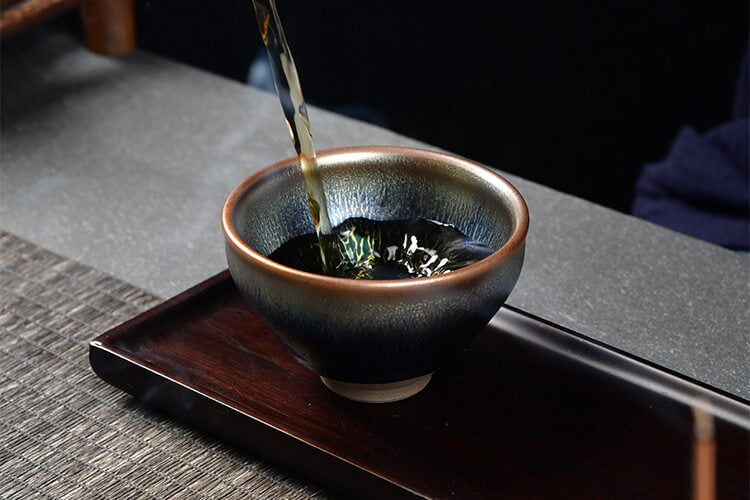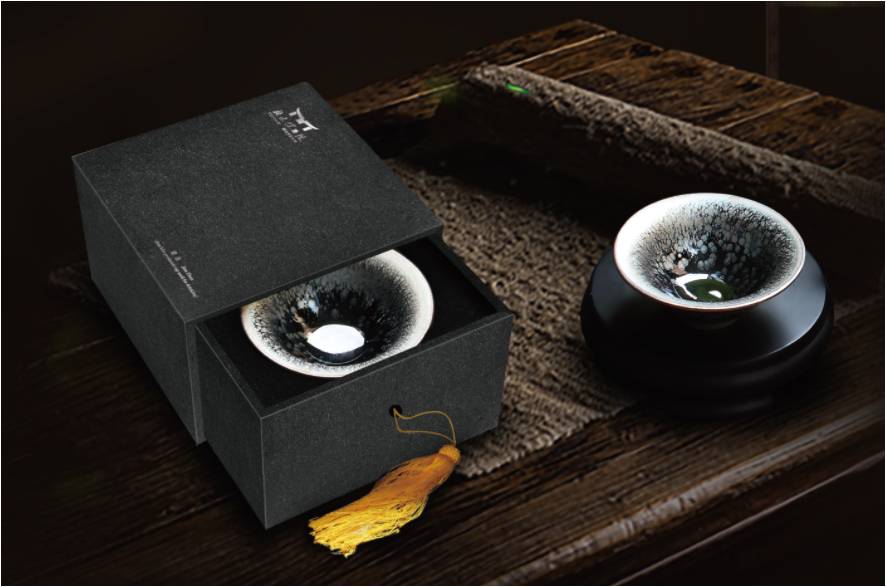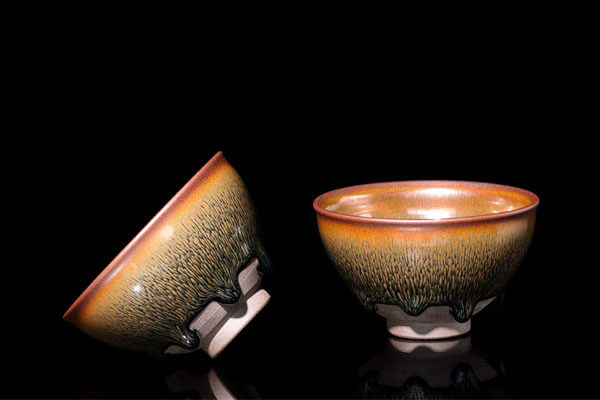2019 JingWei Fu Tea "Shou Chui" (Hand Ramming) Brick 1000g Dark Tea, Shaanxi
- Free shipping worldwide
- Tax and import charges included
- First order 10% Off, Code: TMK2025

This exquisite tea is crafted from high-quality leaves handpicked from the tea plantations in the Qin Ling mountains, an area distinguished by its nationally preserved natural environments.
The tea threads are tightly rolled, showcasing a meticulous neatness and an exceptional appearance, reflecting the care taken in its cultivation and processing.
A prominent characteristic of this tea is the rich presence of "Jin Hua" (Golden Flower or Eurotium Cristatum), which adds a unique depth to its profile.
The tea liquor is remarkably clear with a bright quality, indicating its purity and the attentive methods of preparation.
It exudes a unique Fu tea fragrance, underscored by its fermented characteristics, setting it apart in aroma and taste.
The flavor is sweet, complemented by a refreshing tea essence that is both invigorating and satisfying.
An herbal-like flavor subtly infuses each sip, adding complexity to the tea's profile.
The tea's texture is mellow, subdued, and smooth, making for a remarkably soothing drinking experience.
It leaves a lingering aftertaste, a delightful reminder of its quality and depth.
To preserve its distinctive characteristics and to foster its aging process, this tea is naturally stored in Guangzhou, ensuring its flavors and aromas are maintained and enhanced over time.
Drinking Instruction
called tea washing. Spread the tea leaves evenly and fully so that the tea will come out easily. At last, use hot water above 90 degrees to make it and 20 seconds later pour the tea into the clear cup. Adjust the weak and strong of the tea according to the color to cater to different tastes.
Mysterious Probiotics
Fu Tea is categorized as Dark Tea. Different from Green Tea, Black Tea, Pu’er Tea, Oolong Tea and other types, the process of making Fu Tea are very sophisticated. After three sessions of fermentation, the tea brick will naturally grow a specific type of spores inside called “Golden Flower”, which is a kind of probiotics and good for health.
Golden Flower
The golden flower distinguishes Dark Tea from other types and its quality, such as color, density and plumpness, is the evaluation index of the quality of Fu Tea. The golden flower can effectively adjust the level of blood fat and blood sugar, as well as help disgestion, bowel movement and weight control. It is a good choice to improve the sub-health status.
The Ecological Eden In The Depths Of Qinling Mountains
The Qinling Mountains run from east to west, rising in the heart of China. The mountains provide a natural boundary, as well as a climate dividing line between North and South China. To the south of the range, along the Han River, there is northern margin of the eight tea-producing regions in China since ancient times and the organic raw material base of Jingwei Fu Tea is located here. Because of the high-latitude , high-elevation and no pollution, the natural environment is very suitable for tea trees. In addition, a big temperature difference between day and night, and a longer growing session for tea plants here make the highest-quality tea with many beneficial components.The legend of the East has never been interrupted for thousands of years.Now, the best tea is still being sold from the Qingling Mountains along the ancient Silk Road.
The Organic Raw Material Base
Bai Yan Tea Mountain, a fairyland on earth, located in Qinling Mountains, is the organic raw material base of JingWei Fu Tea. It is full of fresh air and is floating with clouds and fog throughout the year.In winters, the tea mountain is blanketed by snow, so the tea trees not only have a long resting period to absorb abundant trace elements and nutrients from soil, but also have been fully accumulated in the tea leaves.
JingWei Fu Tea company has a strict supervision and control system from planting to drinking. We strictly stick to the national standard for organic plantation and guarantee every tea leaf and every tea brick are safe and super excellence.
Tea Garden Certificate
SHAANXI XIXIANG BAIYAN TEA RA FARM CERTIFICATE
SHAANXI XIXIANG BAIYAN TEA RA FARM VOLUME STATEMENT
ENVIRONMENTAL MANAGEMENT SYSTEM CERTIFICATE OF CONFORMITY
ORGANIC PRODUCT CERTIFICATE
QUALITY MANAGEMENT SYSTEM CERTIFICATE
History&Brand Story
Fu Tea is a type of fermented tea and categorized as Dark Tea. It was invented by Xianyang people of Shaanxi with a special processing technology in 1368. Because the tea was compressed into brick form, and had the similar function with Fu Ling (a traditional Chinese herbal medicine), it got the name Fu Tea, or Fu Bricks. In Chinese, the pronunciation of Fu also means happiness, thus making the tea name an auspicious one with the meaning of bringing happiness and enjoyment.
Original Fermentation Place
The city of Xianyang is the original fermentation place of Fu Tea with its unique geography and climate. There are three indispensable elements for making Fu Tea, the climate conditions at the Central Shaanxi Plain, the water of Jing-Wei River and the techniques held by the local people. Production Manufacture Technique of JingWei Fu Tea have been listed as Intangible Cultural Heritage Project of Shaanxi Province for protection.
The great health benefits of Fu Tea made it an indispensable drink for people in daily life, and therefore the governments in ancient China made standardized management of the production and sales of it. In addition, Fu Tea is regarded as the earliest standardized tea product in China.
Powerful Research Ability and Technical Support
JingWei Fu Tea is a leading brand in Chinese Dark Tea Industry and is awarded a famous trademark in China. The company has also been appointed as Engineering Research Center of Fu Tea by State Forestry Administration, Key Laboratory of the State Tea Science Group; Meanwhile, it is chosen as the secretariat of China Tea Science Society Dark Tea Science Committee and National Technical Committee on Tea of Standardization Administration of China Fu Tea Working Group, which is rarely seen in tea industry in China.
Free shipping
Delivery Time:
Delivery time = Process time + Shipping time
1). Process Time:
Processing Time: 1-3 days
2). Shipping Time:
Standard Shipping: 8-15 business days.
Express Shipping: 5 -7 business days.
Some special countries will take more time. Learn more: Shipping Info.
Our Guarantee:
We accept returns within 30 days of receiving your package.
Learn more about our Return Policy.
























